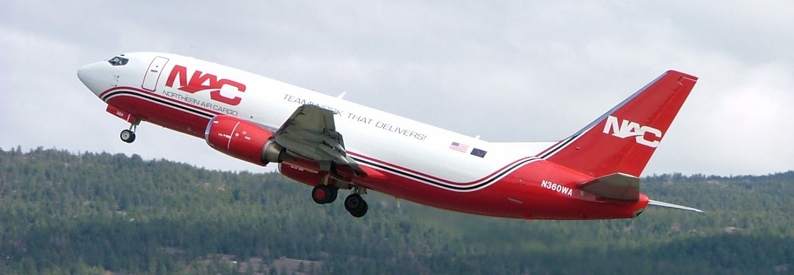Cargo Market Downturn Leads Northern Air Cargo to Store Newly Acquired Boeing 767 Freighters

In a surprising move reflective of the current airfreight market dynamics, Northern Air Cargo, backed by Saltchuk Resources, has opted to place its newly acquired Boeing 767 freighters directly into storage. Despite the global air cargo market showing signs of improvement, the decision underscores the challenges of operating profitably under fluctuating market conditions.
Northern Air Cargo, known for its vital service to Alaska communities from Anchorage, faced a significant $12 million loss in the fiscal year ending September 30, as reported by the U.S. Bureau of Transportation Statistics. This financial backdrop has led to a cautious approach towards expanding the fleet, a strategy initially ramped up during the COVID-19 pandemic when shipping capacity was scarce and rates were high.
The two widebody aircraft, branded under Northern Air Cargo’s sister companies, Aloha Air Cargo and Miami-based StratAir, were delivered in January and April. However, they were immediately moved to Roswell Air Center in New Mexico for storage, a decision confirmed by Saltchuk Aviation spokeswoman April Spurlock. The aircraft were among seven Boeing 767-300s converted from passenger to freighter configuration at a Boeing partner site in Singapore, intended to enhance the fleet capabilities of Saltchuk’s cargo airlines.
The global air cargo sector, despite a 12% rise in volumes in the first quarter compared to the previous year, continues to experience uneven growth, with North America showing the weakest increase in February as per the International Air Transport Association. This variable growth impacts specialized markets like those operated by Northern Air Cargo, Aloha Air Cargo, and StratAir, prompting strategic fleet management decisions.
The new freighters are poised to replace older aircraft as leases expire, though their deployment hinges on a recovery in cargo yields and more favorable market conditions, particularly in the Caribbean and Central and South America where StratAir is active.
This strategy not only reflects the volatile nature of the cargo industry but also aligns with broader trends where other carriers, including FedEx Express and Amerijet, have similarly adjusted their fleet operations in response to market pressures. As the industry navigates through these challenges, Northern Air Cargo’s approach may serve as a prudent model in balancing growth ambitions with economic realities.
Sources: AirGuide Business airguide.info, bing.com, finance.yahoo.com
